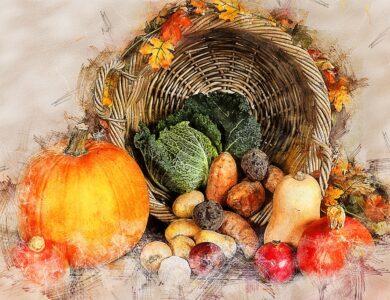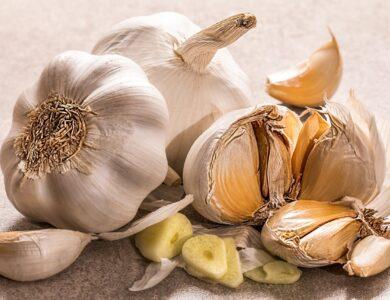Glutton Dream Meaning & Biblical Interpretations

Dreams serve as mirrors to our subconscious, revealing layers of our desires and fears through vivid imagery and complex scenarios. Among these, glutton dream meanings hold a fascinating place, compelling us to explore deeper into our psyche. These dreams may not just be about food; they often symbolize an insatiable hunger for life, love, or fulfillment in areas we feel deprived. The biblical meaning of glutton in a dream adds a spiritual dimension, suggesting a warning against excess and the moral value of temperance. As we delve into the world of glutton dreams, we embark on a journey to understand the feast of emotions and desires that lie beneath our consciousness, offering a chance to nourish our inner selves in more meaningful ways.
Glutton Dream Meaning and Interpretations
When we navigate through the landscapes of our sleep, encountering visions of overindulgence, these scenarios can unfold a rich tapestry of interpretations. The essence of these visions often transcends the simple act of consuming more than necessary, weaving into the fabric of our emotional and psychological realms:
- Overindulgence and Its Echoes: At first glance, these visions might reflect a straightforward concern with excess. Yet, delving deeper, they speak to broader themes of how we engage with the world around us. Are we seeking satisfaction in material or sensory pleasures to the point of neglecting our emotional or spiritual nourishment?
- Emotional Hunger: Often, an encounter with boundless consumption in a dream mirrors an inner void. This void might not be about physical hunger but an emotional one. Are there aspects of our lives where we feel unfulfilled or deprived? These narratives encourage introspection on what we are truly seeking to satiate.
- Personal Relationships: Perhaps the feast in your dream suggests a craving for deeper connections or more meaningful interactions with loved ones.
- Professional Life: Alternatively, it could symbolize an insatiable ambition or the need for recognition in one’s career, questioning if our pursuits truly satisfy our inner desires.
- Warning Against Excess: These dreamscapes can also serve as cautionary tales, prompting us to evaluate our lifestyles. Are we tipping the balance towards excess in ways that might be harmful to our well-being or to those around us?
- Physical Health: Reflections on whether our habits are serving or undermining our physical health.
- Emotional Well-being: Consideration of how our pursuit of pleasure or avoidance of discomfort might be affecting our emotional balance.
- Search for Fulfillment: The heart of these visions often points towards a quest for fulfillment. They challenge us to consider whether we are addressing our deepest needs or merely pacifying ourselves with superficial satisfactions.
- Spiritual Journey: For some, this might mean a call towards a more spiritually aligned life, seeking purpose beyond the physical or material.
- Personal Growth: For others, it may highlight the journey towards self-discovery and the cultivation of inner peace and contentment.
Interpreting these nocturnal narratives requires a delicate balance of self-reflection and openness to the myriad ways our subconscious communicates. By exploring these visions of excess, we are invited to embark on a journey towards understanding our deepest selves, our desires, and how we can find true fulfillment in our lives. This exploration is not just about decoding symbols but about engaging with the profound questions of balance, desire, and meaning that define the human experience.
What are Glutton’s common dreams ?
When the night curtains fall, and we drift into slumber, our subconscious begins its theater, projecting scenes that might perplex us upon waking. Among these are dreams where indulgence takes the center stage, each with its unique tableau and message. Here are some of the most common dreams related to overindulgence and what they might signify:
- Feasting Without Restraint: Dreams where you find yourself at a banquet, indulging in an endless array of dishes, can symbolize a desire for abundance in your waking life. This doesn’t just pertain to food but can also reflect a hunger for love, success, or recognition. Such dreams may suggest that you’re seeking satisfaction in the external world to fill an internal void.
- Sweets Overload: Finding yourself consuming an excessive amount of sweets might indicate a search for sweetness in life. This dream can suggest a need for more joy, pleasure, or nurturing aspects in your reality. It might also reflect on how you deal with stress and emotional discomfort, turning to ‘sweet’ or pleasant distractions rather than addressing the root cause.
- Hunger That Never Ceases: Experiencing unending hunger in a dream, where no amount of food satiates you, could mirror feelings of emptiness or unfulfillment in your daily life. It might point towards emotional needs that are not being met, or ambitions and desires that seem always just out of reach.
- Binge Eating Alone: This scenario might reveal feelings of loneliness or isolation. The act of eating alone, coupled with the inability to stop, may suggest that you’re filling your time or space with activities or habits as a way to avoid confronting deeper issues of solitude or abandonment.
- Spoiled or Rotten Food: Encountering spoiled food that you continue to eat can symbolize ingesting negative emotions or toxic situations in your life. This dream might be prompting you to examine your surroundings and relationships, urging you to discard what no longer serves your well-being.
- Gorging on Forbidden Food: Dreaming of indulging in foods you normally avoid or are not allowed to have might reflect repressed desires or a sense of deprivation in some areas of your life. It could also signify guilt or anxiety about breaking rules or stepping outside societal or self-imposed boundaries.
- Overflowing Grocery Carts: Navigating a grocery store with an overflowing cart can symbolize life’s abundance and the choices available to you. However, it might also hint at feeling overwhelmed by these choices or a fear of scarcity, prompting you to ‘stock up’ excessively, whether it be material goods, relationships, or experiences.
- Cooking an Excessive Meal: Preparing a meal too large to consume by yourself or your guests might indicate a desire to nurture and care for others, perhaps to the point of overlooking your own needs. It can also reflect on your efforts to make a good impression or gain approval through generosity or overextending yourself.
- Eating Non-Food Items: This unusual scenario can symbolize a feeling of desperation or an attempt to ‘digest’ difficult situations or emotions. Consuming non-food items in a dream might be urging you to recognize and address what is truly nourishing you versus what is merely filling a void.
Each of these dreams opens a window into our deeper selves, revealing our yearnings, fears, and the emotional nutrients—or lack thereof—that shape our waking life. By contemplating these nocturnal narratives, we can begin to understand the complex relationship between our inner voids and how we seek to fill them. This understanding can lead us to healthier ways of satisfying our true hunger, guiding us toward a more balanced and fulfilling existence.
Biblical Meaning of Glutton in Dreams
In the tapestry of dreams where indulgence and excess paint the landscape, turning to the ancient wisdom of the Bible can offer a profound layer of interpretation. The biblical narrative often uses the concept of gluttony not just in the literal sense of overeating, but as a metaphor for deeper spiritual maladies such as greed, lack of self-control, and the pursuit of earthly pleasures over spiritual wealth. Here’s how such dreams might be understood from a biblical perspective:
- A Call to Moderation and Self-Control: Gluttony, in the biblical sense, is frequently associated with a lack of self-discipline and moderation. Dreams featuring excessive eating or indulgence might be interpreted as a divine nudge towards exercising more self-control, a virtue highly esteemed in biblical teachings. It’s a reminder that while nourishment is necessary, overindulgence can lead to spiritual and moral decay.
- Warning Against Spiritual Emptiness: Often, dreams of gluttony could symbolize a deeper hunger, not for physical food, but for spiritual fulfillment. In this context, such dreams might be urging the dreamer to feed their soul with spiritual nourishment—prayer, meditation, and actions aligned with divine will—rather than solely seeking fulfillment in materialistic or worldly pleasures.
- Greed and Materialism: Eating excessively in dreams can also reflect a preoccupation with material wealth and possessions, cautioning against the dangers of greed. The biblical perspective encourages sharing with the less fortunate and warns that hoarding wealth can lead to spiritual impoverishment.
- The Need for Discernment: Indulging in a variety of foods in a dream might represent the plethora of choices life offers, urging the dreamer to practice discernment. From a biblical standpoint, not all that glitters is gold, and discerning what is truly beneficial for one’s spiritual growth is crucial.
- Pursuit of Earthly Pleasures: A dream where one is consumed by the desire for sensual pleasures might be reflecting a misalignment with spiritual values. The Bible cautions against being led astray by the desires of the flesh, advocating for a life that prioritizes spiritual over temporal joys.
- Invitation to a Deeper Communion: Sharing a meal in dreams can have a positive connotation, reminiscent of the Last Supper, symbolizing fellowship and communion. Such dreams might encourage the dreamer to seek deeper connections, not just with others, but with the divine, highlighting the importance of community and spiritual unity.
- Repentance and Transformation: Encountering consequences of gluttony in a dream, such as illness or discomfort, could symbolize the need for repentance and change. It’s a prompt to turn away from excess and realign one’s life with principles that foster spiritual health and growth.
- Celebration of God’s Provision: On a more positive note, dreams of abundant food can also be seen as affirmations of God’s provision and care. They remind us to be grateful for our blessings and to trust in divine provision, even in times of scarcity.
- Symbol of Divine Sustenance: Lastly, eating heavenly or unfamiliar food in dreams might symbolize divine sustenance. Just as manna fed the Israelites in the desert, such dreams remind us that our ultimate nourishment comes from a higher source, encouraging reliance on spiritual rather than earthly food.
Interpreting dreams with overindulgence through a biblical lens invites a rich exploration of one’s spiritual state. It’s an opportunity to reflect on personal values, priorities, and the spiritual health of one’s life journey. These interpretations offer not just warnings but also guidance towards a life marked by balance, spiritual depth, and a closer relationship with the divine. Through such introspection, dreams of gluttony can transform from tales of excess to pathways of spiritual awakening and renewal.
Conclusion
Unraveling the glutton dream meaning provides more than just an insight into our nocturnal mind wanderings. It serves as a reminder of our deep-seated desires for abundance and the dangers of overindulgence. The biblical meaning of glutton in a dream echoes this sentiment, urging us towards moderation and spiritual reflection. As we reflect on these dreams, we’re invited to consider what we truly hunger for in life and how we can seek fulfillment in balanced, healthy ways. This journey into the realm of dreams is not just about understanding our subconscious cravings but about finding harmony within ourselves and aligning our desires with our true purpose.



